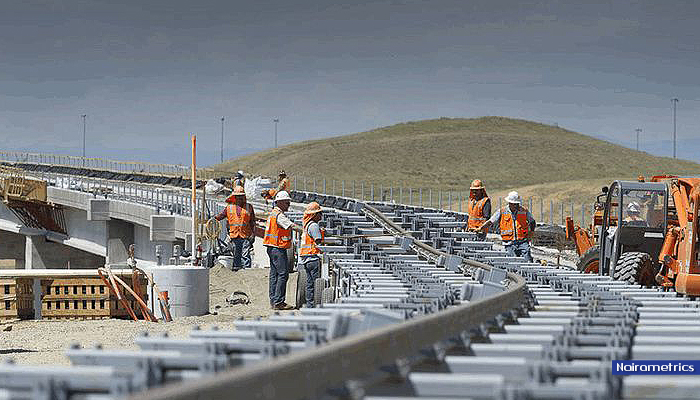Nairametrics| Chinese state-owned firm China Civil Engineering Construction Corp (CCECC) was recently awarded a three-year management contract worth $1.79 billion for work on the second phase of Abuja Mass Transit Railway. The Export-Import Bank of China, a state-owned institution, will finance the project.
The three projects to be managed by CCECC are the construction of the Mass Transit Lot 1B (26.77km) which is from Ring Road I; the construction of remaining part of Lot 1A (5.76km); and the construction of rolling stocks and workshop equipment for maintenance of trains. This is a good form of continuity as the company had also worked on the first phase of the project.
CCECC has steadily built a name for itself in the Nigerian construction industry, competing with long time players Julius Berger and Cappa D’Alberto. CCECC is headquartered in Beijing, China, and it has business activities in over 40 countries. In becoming a dominant player in Nigeria, CCECC has benefited from its ties with the Chinese government, who use it as a conduit to dispense its investment and aid in Nigeria.
In January this year, the Chinese government said that it planned to spend an additional $40 billion in Nigeria, on top of $45 billion of investments already spent.
He said his country had invested about $45b in various projects in Nigeria and is at the verge of releasing another $40b.
“China has already invested or financed a total number of $22billion projects here in Nigeria, another $23billion projects are on-going. In addition, we are also following up another over $40billion of investments, which are in the pipeline,” Chinese Foreign Affairs Minister, Wang Yi
A bulk of this spending goes into infrastructural development such as rail, road and power. Typically, such infrastructural spending by Chinese state sponsored entities goes through its own state corporations, who then implements specified infrastructure projects.
It is currently dominating Nigeria’s emerging rail industry, taking over the place of long time players like Julius Berger and Costain West Africa. It has won major construction contracts from the Nigerian government: In 2014, CCECC won a contract to build double track standard gauge railway from Lagos to Kano; In 2016, it signed an agreement with the FG for the construction of the Lagos – Calabar coastline, worth $11.17 billion; In March 2017, it began construction of Segment II of the Lagos-Ibadan Rail Project worth $1.5 billion (about N458 billion).
Although China’s development spending may have come at little to no monetary cost to the Nigerian government, many have criticized this spending, pointing out that it has facilitated the entry of a greater number Chinese corporations and contributed to the influx of ultra-cheap Chinese goods in local markets.
Nigeria will undoubtedly be looking to keep its infrastructure costs down due to its lower earnings caused by the recession. This means going with lower price tags – an area where CCECC has an advantage.
CCECC is able to offer lower prices than its competitors like Julius Berger due to its operating model. A consultant supervising CCECC on a World Bank assisted roads project in Akwa Ibom said that Julius Berger might build better quality products, but at a higher price because their quality control and procurement are done centrally, independently and frequently to ensure standards. Whereas, CCECC has a less rigorous system that leaves quality and procurement to the discretion of the site manager who may choose to source materials from local producers to enhance peaceful community relations. Materials sourced centrally are often of better quality than those sourced locally, Nonetheless, CCECC has shown that it can produce good quality work but with strict supervision, the consultant added.
